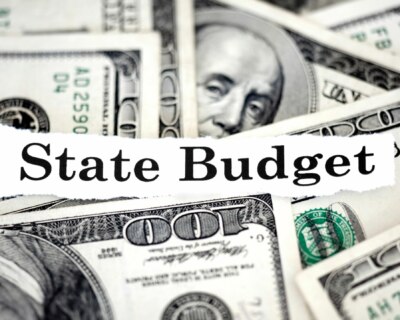Study Says Unemployment Benefits Hurting Job Growth
Economists across the board agree that extending unemployment benefits disincentivizes workers
NEW ORLEANS, La. – A recent study contends that the unemployment insurance system is in need of an overhaul, as the current system “[exacerbates] negative job growth”.
According to the Tax Foundation, a non-partisan tax education organization, the financial burden faced by state governments and businesses demonstrates that the system is in need of immediate reform.
The study claims that record high levels of unemployment and record low reserve funds are placing additional pressure on the unemployment insurance system.
 Joseph Henchman, Vice President of Legal and State Projects for the Tax Foundation, says that unemployment insurance was meant to be a program that built up surpluses in prosperous times, with the expectation that they would be spent down during economic downturns.
Joseph Henchman, Vice President of Legal and State Projects for the Tax Foundation, says that unemployment insurance was meant to be a program that built up surpluses in prosperous times, with the expectation that they would be spent down during economic downturns.
“The problem with most state funds is that they stopped building up reserves during the good times. Before the beginning of the recession in 2008, less than half the states were in a position to disburse more than a year’s worth of the kind of high benefit pay-outs that would be expected in a major economic downturn.”
As a result, 34 states have borrowed over $37 billion to pay for benefits, and many may default on interest payments to the federal government.
From 2008 to 2011, $174 billion was paid in unemployment taxes while $450 billion was paid out in benefits, leaving states with a $276 billion hole.
In 2011 alone, employers and employees are projected to pay $51.8 billion in unemployment taxes, while $131.4 billion is projected to be paid out in benefits for the recently unemployed.
 If states fail to make interest payments, the Tax Foundation expects an increase in taxes on businesses.
If states fail to make interest payments, the Tax Foundation expects an increase in taxes on businesses.
Lawrence Summers, former economic advisor to President Obama, admits that government assistance programs contribute to long-term unemployment by providing an incentive, and the means, not to work.
“Each unemployed person has a ‘reservation wage’ – the minimum wage he or she insists on getting before accepting a job.”
This is also know as a compensation differential, which occurs when the difference between the benefits unemployed persons are paid by the government through unemployment benefits and the amount they would be paid by an employer is not significant enough for people to look for work.
Cato Institute’s Alan Reynolds found nearly two percent of the current jobless rate is due to extensions of unemployment insurance and other federal policies.
In addition, the Brookings Institute found in March 2010 that extensions in unemployment insurance “correspond to between 0.7 and 1.8 percentage points of the 5.5 percentage point increase in the unemployment rate witnessed in the current recession.”
Dr. Walter Block, economics professor at Loyola University New Orleans, contends that the government is actively subsidizing unemployment, causing the unemployment rate to rise.
“The more you subsidize something, the more of it you get. If the government wanted the unemployment rate to fall, it would find a way to tax unemployment.”
Louisiana has fared well in relation to average unemployment tax rates and average weekly benefits, ranking 48th and 49th respectively.
Recently, the Senate rejected President Obama’s $447 billion job bill, which would have extended unemployment insurance for many.
Data from the National Employment Law Project shows that roughly 6 million are set to lose federal unemployment benefits in 2012, with 1.8 million running out in January.
House Majority Leader Eric Cantor claims that unemployment benefits should not turn into a permanent solution, rather, “We should somehow connect the unemployed and unemployment benefits with work and job opportunity.”
Robert Ross is a researcher and social media strategist with the Pelican Institute for Public Policy. He can be contacted at rross@pelicanpolicy.org, and you can follow him on twitter.





